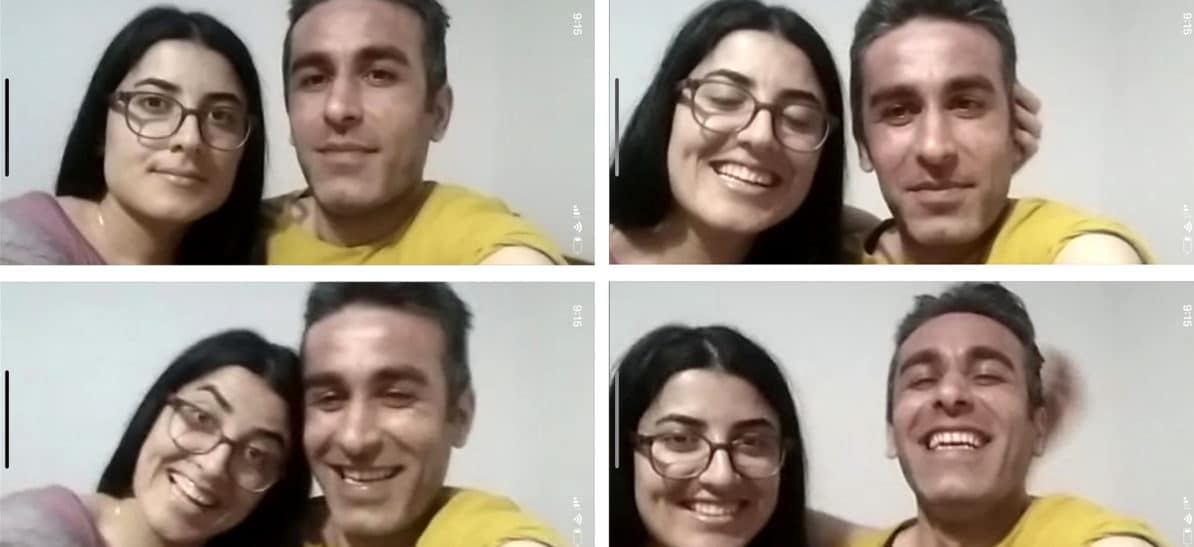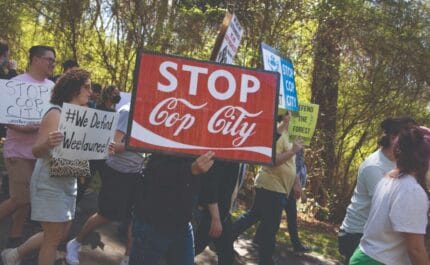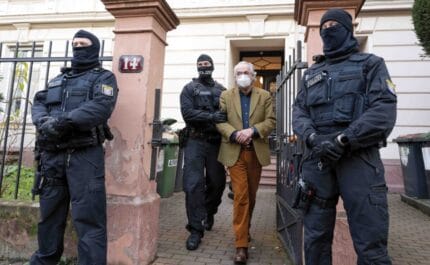Love in a hopeless place – update #2

Mohammed and Parvaneh at home in Bucharest, April 2020
4th April 2020
Since 2017 Jodi Hilton has been following the story of Mohammed Gholamipour and his wife Parvaneh Khezernejhad, a Kurdish couple who escaped their native Iran so they could live together in peace. In issue #31 she told the story of how their dangerous journey to find a better life in Europe had turned into a Kafkaesque nightmare, with Mohammed ensnared in Romania’s court system, protesting his innocence against charges of people-smuggling.
Seven months after her original story, Jodi updated us on their story, explaining how Mohammed had turned himself into the Romanian authorities after a short, desperate period of homelessness in Serbia.
A few weeks ago Jodi received an excited message from Parvaneh, who is now reunited with Mohammed in Bucharest. Before reading Jodi’s latest update, we suggest you read the original April 2018 piece here and the December 2018 update here.
Over the past 16 months Mohammed has spent time in four different prisons. At one of them, in Galati, near the border with Moldova, the other inmates greeted him with hostility. The moment he entered the shared cell, he recalls, he was punched in the face and told he wasn’t welcome. “It was really cold and we didn’t have mattresses, blankets or pillows,” he says. “The toilet was horrible.” After 20 days in Galati he was transferred to a prison in Bucharest.
Parvaneh, who was living in the Romanian capital, found employment at an Iranian-owned dried fruit-packing factory and accommodation in a women’s dormitory. She was occasionally able to see her husband on visiting days at the prison, where he worked as a cook and studied Romanian. The kitchen job counted as time against his sentence, making an early release possible.
In March 2020 Mohammed was scheduled to appear to court to make the case for his release. He was initially told that his hearing would be online due to new Covid-19 restrictions but he was brought to court in person, where only the judge, his lawyer and the prosecutor were allowed to be present. Parvaneh could not be there. Mohammed says the prosecutor claimed that he hadn’t worked or taken classes in prison and therefore shouldn’t be eligible for early release. He insisted that he had indeed worked and studied, and noted that he had a spotless record in prison.
After the session Mohammed was sent back to prison where he awaited the verdict. The news, when it came, was what he had been hoping for. “I was told to gather my clothes and get ready to leave,” recalls Mohammed. “I thought maybe they were joking with me.” It was a particularly good time to get out. Mohammed says that Covid-19 was beginning to spread in the prison and that two of the inmates he shared a cell with had been infected with the virus.
From a payphone outside the prison, Mohammed dialled his wife’s number. “I asked her if she had any information on when I might get released,” he says. She told him that he would probably have to wait for a few days until a decision was made. Then Mohammed revealed his news. “I’m outside,” he said, “but I have no idea how to get to the city.”
Parvaneh abandoned cooking her dinner and asked a friend to drive her to the prison. Forty-five minutes later, the couple were reunited.
Mohammed got a job at the same dried fruit-packing factory Pavaneh works in. They are renting a small Bucharest apartment overlooking a park and despite the coronavirus pandemic, they both go to work every day. They are keen to leave Romania and they face challenges ahead, especially with the pandemic limiting employment, but at least they can now face them together. It’s a more positive new chapter in a story that began three years and a thousand miles away. We’ll keep following it.
Slow Journalism in your inbox, plus infographics, offers and more: sign up for the free DG newsletter. Sign me up
Thanks for signing up.








